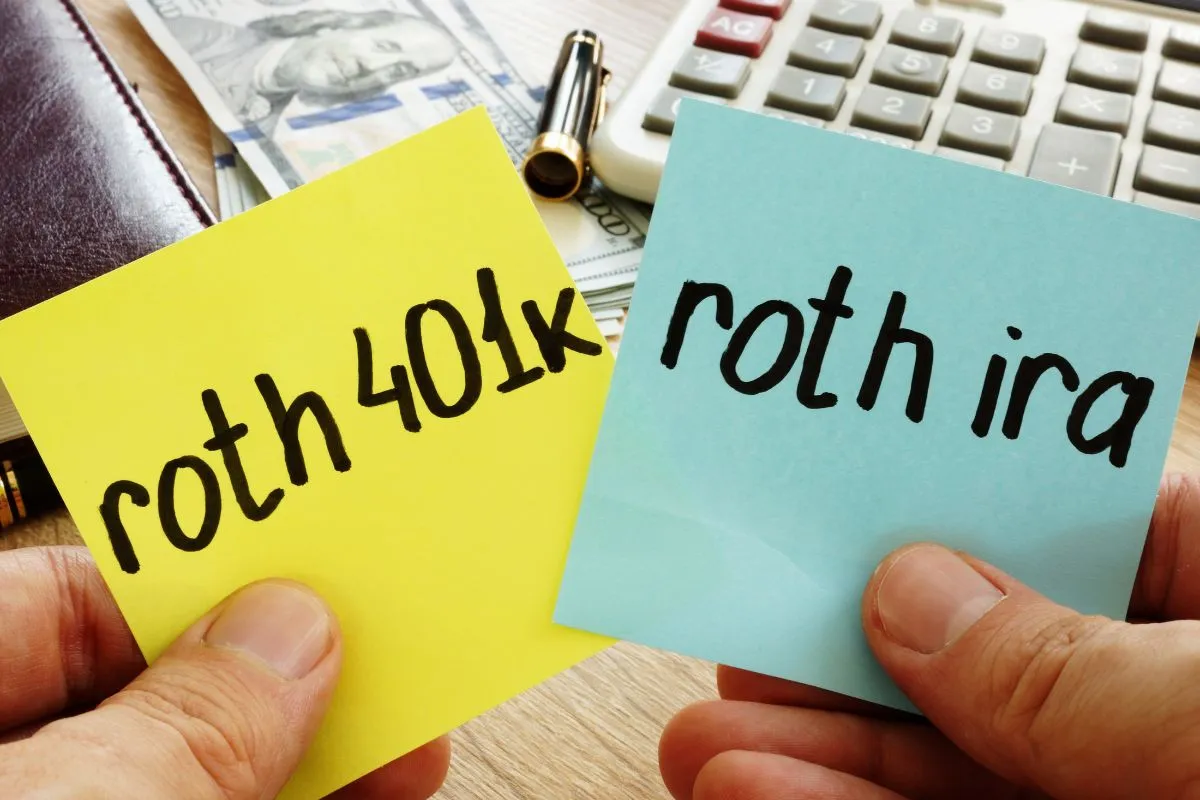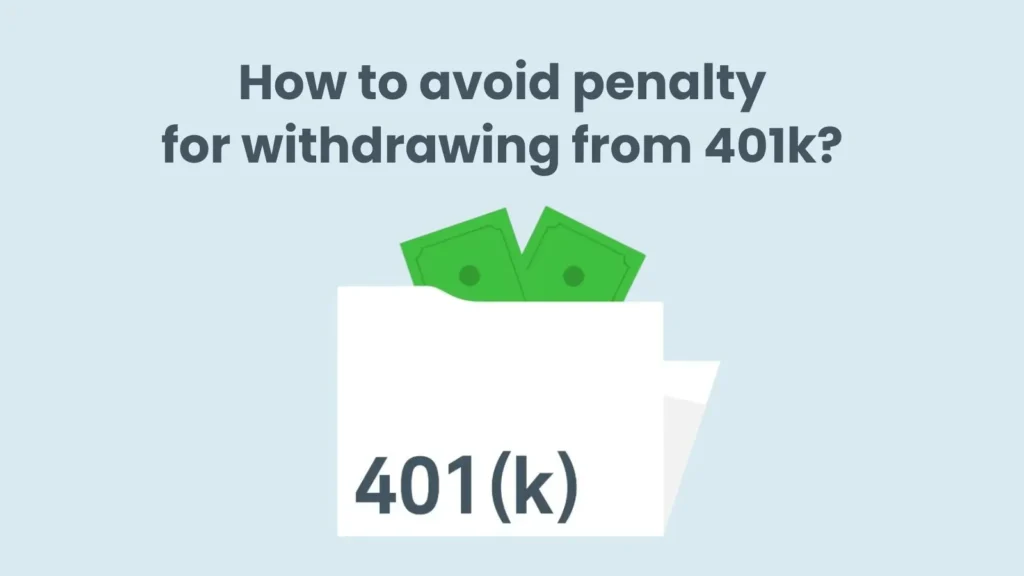Updated on October 5, 2024
Saving money for when you stop working is smart, and 401(k) plans are a reliable way to do that. However, taking money out early can be tricky and might cost you extra through penalties and taxes.
Many people contribute to their 401(k) or other retirement savings accounts annually, much like placing coins in a piggy bank for future use. But life can be unpredictable, and sometimes, you might need those funds sooner than planned.
In this comprehensive guide, we’ll explore what happens if you need to take out your savings early, the penalties involved, exceptions to avoid these penalties, and strategies to safeguard your retirement funds.
Key Takeaways:
- In a regular 401(k) plan, withdrawals are typically restricted until you reach 59½ years old, except for special situations like hardships or significant life events.
- Early withdrawals from a 401(k) account usually incur a 10% penalty fee.
- Income taxes are owed on withdrawals because the account was funded with pre-tax dollars.
- Certain circumstances, such as hardship withdrawals, job termination, or specific life events, may allow for penalty-free early distributions.
What is the Penalty for Withdrawing from 401(k) Early?
The IRS imposes a significant financial penalty for withdrawing money from your 401(k) before reaching the age of 59½. This penalty is an additional 10% on top of the regular income taxes owed on the distributed amount, reducing the immediate value of the withdrawal.
When Can You Withdraw from 401(k) Without Penalty?
Avoiding the 10% early withdrawal penalty is possible under certain circumstances. Here are the qualified exceptions:
Medical Bills Without Reimbursement
You can make a penalty-free 401(k) withdrawal to cover unreimbursed deductible medical expenses that exceed 10% of your adjusted gross income. The withdrawal must occur in the same year the medical bills were incurred.
Incapacity or Disability
If you are permanently disabled, you can withdraw from your 401(k) without the 10% penalty. You’ll need to provide official documentation from a healthcare professional confirming your disability.
Beneficiaries’ Withdrawal After Passing
Upon the account holder’s death, beneficiaries can access the 401(k) without facing the 10% penalty. However, certain limitations may apply to spouses who inherit an IRA.
If You Owe the IRS
In the event of IRS levies against your 401(k) due to unpaid taxes, you can make penalty-free withdrawals to address the tax debt.
For Income Purposes (SEPP)
Under Section 72(t) of the tax code, you can take substantially equal periodic payments (SEPP) from your 401(k) to avoid penalties. These payments must continue for at least five years or until you reach age 59½, whichever is longer.
Early Retirement from Work
If you leave your job in the year you turn 55 or later (50 for specific federal roles), you may avoid the 10% penalty for withdrawing from your employer-established 401(k).
Giving Birth or Adoption
The IRS allows a specific exception for up to $5,000 withdrawals related to the birth or adoption of a child, provided the distribution is taken within one year of the event.
401(k) Division in Divorce
If your divorce settlement involves cashing out a 401(k) to split with your ex-spouse, the withdrawal may be penalty-free if it aligns with a qualified domestic relations order.
Disaster Relief
Victims of disasters for which the IRS grants relief may be permitted to make penalty-free withdrawals from their 401(k).
If You Are Converting Your 401(k) to an IRA
Rolling over your 401(k) to another eligible retirement plan within 60 days can avoid the 10% penalty. IRAs have different withdrawal rules, offering more flexibility.

How to Avoid Penalties for Withdrawing from 401(k) Early
To protect your 401(k) or IRA from early withdrawals, consider these strategies:
Prioritize an Emergency Fund
Save at least six months’ worth of living expenses in a high-yield savings account. This fund can cover unexpected events without tapping into your retirement savings.
Exercise Caution with Promotional Credit Cards
If a need arises, use credit cards with zero percent introductory offers, but ensure you clear the balance within the promotional period to avoid high-interest rates later.
Seek Support from Friends and Family
Consider reaching out to your social circle for financial assistance. Friends and family can offer more flexible and understanding support compared to traditional lenders.
Consider Personal Loans Carefully
Evaluate personal loans, which don’t require collateral. Applying through a bank or credit union where you have an established relationship can increase approval chances and offer repayment flexibility.
Explore Portfolio Line of Credit
A portfolio line of credit, backed by your investment portfolio, offers lower interest rates due to collateral. However, the value of your collateral can affect loan terms.
Conclusion
While there are ways to avoid penalties for withdrawing from your 401(k) early, it’s advisable to keep your retirement savings untouched until you retire. Early withdrawals can hinder the power of compounding, potentially reducing your long-term savings growth.
To take control of your financial situation, consider organizing your finances, planning ahead, and consulting with a financial advisor to ensure your retirement savings remain secure.
FAQ
What age can I get money from my 401(k) without penalty?
You can start withdrawing money from your 401(k) without facing the 10% early withdrawal penalty once you reach the age of 59½. However, regular income taxes will still apply to the withdrawn amount.
Is the 10% penalty waived if I take a 401(k) loan instead of a distribution?
No, the 10% penalty is not waived if you take a loan from your 401(k). A 401(k) loan is expected to be repaid, and while it doesn’t trigger taxes or penalties initially, failure to repay the loan can result in taxes and penalties if you’re under 59½.
How does the “Rule of 55” work?
The “Rule of 55” allows individuals who leave their job in the year they turn 55 or later (50 for certain professions) to withdraw funds from their current employer’s 401(k) without the 10% early withdrawal penalty. This rule applies only to the 401(k) of your current employer and not to IRAs or 401(k)s from previous employers.
Are there specific forms or paperwork I need to complete to request a penalty-free 401(k) withdrawal for qualified reasons?
Yes, you typically need to complete specific forms provided by your 401(k) plan administrator to request a penalty-free withdrawal. It’s essential to provide necessary documentation to demonstrate that your withdrawal qualifies for an exemption. Consulting with a financial advisor can help ensure you complete the process correctly.
How does a terminal illness diagnosis impact 401(k) early withdrawal penalties?
Individuals diagnosed with a terminal illness can withdraw funds from their 401(k) without incurring the 10% early withdrawal penalty. To qualify, you must provide official documentation from a healthcare professional confirming your terminal condition.
What exceptions exist for military reservists regarding 401(k) early withdrawal penalties?
Military reservists called to active duty for more than 179 days or for an indefinite period may withdraw from their 401(k) without penalty if the distribution occurs during active duty.
How does being a victim of domestic abuse influence 401(k) early withdrawal penalties?
Victims of domestic abuse may withdraw up to $10,000 or 50% of their 401(k) account—whichever is less—without incurring the early withdrawal penalty. This exemption provides financial flexibility during challenging times.
Can first-time homebuyers withdraw from their retirement accounts without penalties, and what are the conditions?
Yes, first-time homebuyers can withdraw up to $10,000 from their traditional or Roth IRA without penalty for purchasing, building, or rebuilding a first home. Conditions include using the funds within 120 days and meeting the IRS’s definition of a “first-time homebuyer,” which typically means not having owned a home in the past three years.
What are required minimum distributions (RMDs) and how do they affect retirement planning?
Required Minimum Distributions (RMDs) are mandatory withdrawals from tax-deferred retirement accounts that begin at age 73 (or 75 for those turning 74 after December 31, 2032). RMDs are calculated based on your account value as of December 31 of the previous year and are treated as taxable income, impacting your overall tax liability. Proper planning is essential to manage RMDs effectively.
What is a 401(k) loan and how does it differ from a hardship withdrawal?
A 401(k) loan allows you to borrow against your retirement savings and repay it over time, typically within five years, without triggering taxes or penalties. In contrast, a hardship withdrawal permanently reduces your retirement savings and may still be subject to taxes and penalties unless it qualifies for an exemption.
What is a Series of Substantially Equal Payments (SEPP) and how does it affect 401(k) withdrawal penalties?
Series of Substantially Equal Payments (SEPP) allow you to take early withdrawals from your 401(k) without penalty by making fixed, periodic payments based on your life expectancy or that of your beneficiary. These payments must continue for at least five years or until you reach age 59½, whichever is longer, to avoid retroactive penalties.








 anywhere
anywhere  anytime
anytime